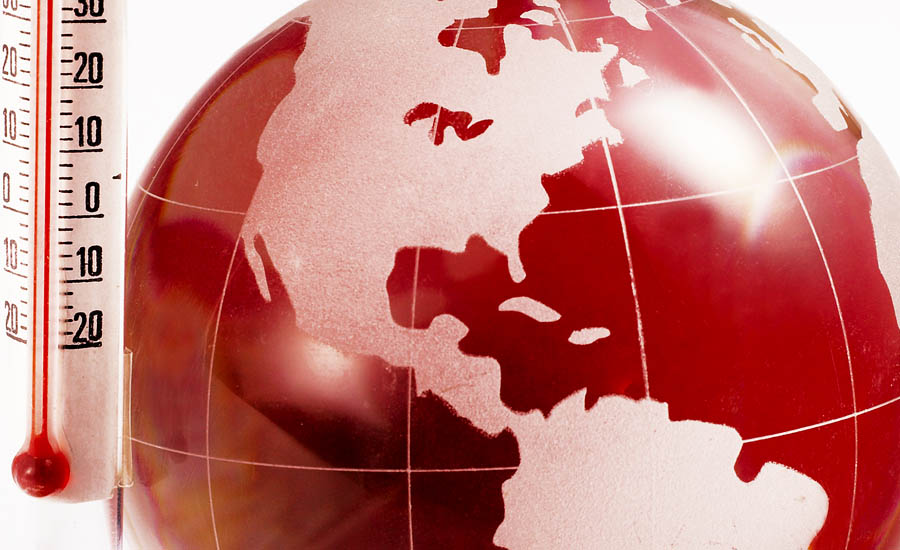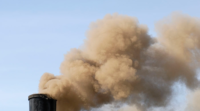From respiratory illnesses to lower birthweight to deaths caused by the “urban heat island effect,” a special supplement recently published by the American Journal of Public Health explores the many ways in which climate change is impacting public health.
The wide-ranging collection of editorials and research articles examines how climate change is already changing human health and discusses how the public health community and policymakers can respond to this threat.
New research in the supplement discusses estimations of the health and economic impacts of changes in local air quality due to climate change, the role of health in climate litigation and strategies to reduce greenhouse gas emissions from laproscopic surgery. The supplement also includes additional research first published in AJPH online in 2017, ahead of print.
The supplement includes editorials from a wide array of public health leaders discussing climate change as a public health issue, potential solutions and the value of published research. One editorial by Jalonne White-Newsome, Phyllis Meadows and Chris Kabel with The Kresge Foundation argues that both health disparities and climate injustices must be addressed together if we are to move forward in protecting against the harmful effects of climate change.
“Communities of color are disproportionately harmed by the effects of toxic emissions and contaminants across the nation,” said White-Newsome, senior program officer with Kresge’s Environment Program. “And we think of climate change impacts as a force multiplier for these harmful effects – stronger storms, heavier rainfall and flooding, and more intense heat waves to name a few. Bringing health professionals together with climate experts – as this special supplement has done – is an important step in advancing solutions that are equitable for all populations.”
“Our vision for a Culture of Health, one in which everyone has a fair and just opportunity to lead a healthy life, depends on communities that respond to the health impacts of our changing climate,” said Alonzo Plough, Vice President and Chief Science Officer, Robert Wood Johnson Foundation.
Other editorials in the supplement address how public health can move forward with climate change work in the current presidential administration, legal issues, and historical perspectives on public health and environment.
Here are the AJPH papers included in this supplement:
- Finding our voice: public health on the front lines of climate change
- Climate change, public health and policy: a California case study
- Differences in heat-related mortality by citizenship status United States, 2005-2014
- Health care's carbon footprint: stomping or treading lightly?
- The need for climate and health education
- The critical roles of health professionals in climate change prevention and preparedness
- Estimated global disease burden from United States healthcare sector greenhouse gas emissions
- Outcomes of climate change in a marginalized population: an ethnography on the Turkana pastoralists in Kenya
- A time for action: APHA's 2017 year of climate change and health
- Global association of air pollution and cardiorespiratory diseases: a systematic review, meta-analysis and investigation of modifier variables
- Climate and birthweight: investigating agricultural livelihoods in Kenya and Mali
- Green space and deaths attributable to the urban heat island effect in Ho Chi Minh City
- Climate, health and equity: the imperative of working at the intersection
- Legal authority and the public health response to climate change
- Global climate change and the "so what?" issue: reversing the impact of Donald Trump
- Clarifying the connections between green space, urban climate, and heat-related mortality
- Climate change and public health: federal denial and local action
- The EPA in the early trump administration: prelude to regulatory capture?
- Strategies to reduce greenhouse gas emissions from laparoscopic surgery
- Climate change and human health: links between history, policy, and science
- Climate change and public health: business backs action while America backs away
- Estimating the health and economic impacts of changes in local air quality
- The role of health in climate litigation
- Barry Commoner and the current environmental crisis
- The Donora smog revisited: 70 years after the event that inspired the Clean Air Act
- Linking mitigation and adaptation responses to climate change
- Paving the way for Trump: past presidential assaults on environmental health protection
- Building a culture of health in our changing climate
- Legal authority is not a legal strategy
- Are non-U.S. Citizens more likely to die from heat exposure?
External funding support for this supplement was provided by the The Kresge Foundation, Troy, MI, and the Robert Wood Johnson Foundation, Princeton, NJ.
The American Journal of Public Health is the monthly journal of the American Public Health Association, a nearly 150-year-old organization that champions the health of all people and all communities and influences federal policy.
The Kresge Foundation was founded in 1924 to promote human progress and fulfills that mission by working to dismantle structural and systemic disparities facing low-income people in American’s cities and replacing them with pathways to economic and social equity.



